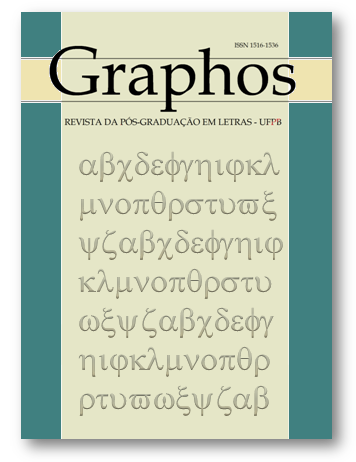Mística feminina – escrita e transgressão
Keywords:
Medieval mysticism, Women, TransgressionAbstract
In this article we intend to approach the thought of some women with regard to their writings ranging from philosophy, spirituality and transgression. So, we have as perspective the fact that these women are "female souls" at a time when they could not preach, teach or write, especially that preached, taught and wrote. Soon, theirs voices and theirs writings sound like some kind of a triple transgression: gender transgression (even though it should not have the weight of the modern sense of the term); a transgression against the orthodoxy of the Church (when explicitly or covertly criticize some of their habits); and a transgression of the bounds of the relationship between the human and the divine (when the soul and God become one). Now, if the writings of these women cause us surprise these days, not only by the experience that they reflect, but also, as some say scholars, by rooting a solid fund of knowledge; What about the reaction of many of his contemporaries: a astonishment that some considered wonderful and others, dangerous. However, the history of female writing should not be read only as the story of a transgression, as it can draw from the texts, too, the rewrite of a passion. A passion that has as the sacred horizon, in different ways and by different expressions, tracks the history of humanity. In this sense, we can say that the "female writing" of Medieval philosophy shows up, apart from the story of a transgression, the story of a passion for the divine.
Downloads
References
BATAILLE, Georges. O erotismo. Trad. De Fernando Scheibe. Belo Horizonte: Autêntica Editora, 2014.
BEATRIZ DE NAZARÉ. Los siete modos de amor – Vidas y visiones. Trad. de M. Tabuyo. Barcelona: J. J. deOlañeta, 2004.
BENEITO, Pablo (Ed.). Mujeres de luz – La místicafeminina, lo femininoen la mística. Madrid: Trotta, 2001.
BRETON, Stanislau. Philosophieetmystique: Existence et surexistence. Grenoble: J. Millon, 1996.
CAPELLE, Philippe. “Verso una tipologia dellarelazione filosofia-mistica”. In: Esperienza mística e pensiero filosófico – Atti Del Colloquio «Filosofia e Mística» (Roma, 6-7 dicembre 2001). Cittàdel Vaticano: LibreriaEditrice Vaticana, 2003, p. 72-86. CATARINA DE SIENA. Cartas completas. Trad. João Alves Basílio. São Paulo: Paulus, 2005.
CIRLOT, Victoria e GARÍ, Blanca. La mirada interior. Escritoras místicas y visionarias enlaedad media. Barcelona: Ediciones Martínez Roca, 1999.
ELIADE, MIRCEA. Origens. História e sentido da religião. Trad. Teresa Louro Perez. Lisboa: Edições 70, 1989.
ÉPINEY-BURGARD, G. e BRUNN, Émile Zum. Mujeres trovadoras de Dios – Una tradición silenciada de la Europa medieval. Trad. de A. López e M. Tabuyo. Barcelona: Paidós, 2007.
GARB, Jonathan. “Mystics' Critiques of Mystical Experience”. In: Revue de l'histoire des religions. tome 22,1 n°3, 2004, p. 293-325. doi : 10.3406/rhr.2004.1492.
GUARNIERI, R. y VERDEYEN, P. (Eds). Marguerite Porete: Le moirouerdes simples ames. Margaretae Porete, Speculumsimpliciumanimarum. Corpus Christianorum, ContinuatioMedievalis LXIX, Brepols: Turnhout, 1996.
HADEWIJCH DE AMBERES.Visiones.Trad.MaríaTabuyo Ortega. Barcelona: Olañeta, 2005.
HADEWIJ DE AMBERES.Dios, Amor y Amante.Las Cartas.Trad.dePablo María Bernardo. Madrid: Ediciones Paulinas,1986.
HEGEL, W. Introdução à História da Filosofia.Trad. Antonio Pinto de Carvalho. São Paulo: Abril Cultural, 1989, (Ospensadores).
RUUSBROEC, Jan. Le Livre des XII Béguines ou de lavraiecontemplation. Traduitduflamand, avecintroduction par l’abbé P. Cuylits. Bruxelles: Libraire Albert Dewit, 1909.
KAZANTZÁKIS, Nikos. Ascese. Os salvadores de Deus. Trad. De José Paulo Paes. São Paulo: Ática, 1997.
LUCCHESI, Marco. “Crítica da razão desesperada: Deus ou Deus”. In: TEIXEIRA, Faustino (Org.). Nas teias da delicadeza – Itinerários místicos. São Paulo: Paulinas, 2006, p. 267-285.
MECHTHILD VON MAGDEBURG. Das flißenndeLicht der Gottheit. Stuttgard: GmbH&Co., 2008.
NOGUEIRA, Maria Simone Marinho. “A escrita feminina medieval: mística, paixão e transgressão”. In: Mirabilia 17, 2013, p. 127-135. Disponível em:<http://www.revistamirabilia.com/issues/mirabilia-17-2013-2>. Acesso em 24 jun. 2015.
PAES, José Paulo. Introdução à Ascese. Os salvadores de Deus, de NikosKazantzákis. São Paulo: Ática, 1997, p. 11-36.
PORETE, Marguerite. O espelho das almas simples e aniquiladas e que permanecem somente na vontade e no desejo do amor. Trad. Sílvia Schwartz, Petrópolis/RJ: Vozes, 2008.
REHERMANN, Carlos. “Cantos a la dama amor: místicas y trovadoras de laEdad media. Disponível em <http://www.henciclopedia.org.uy/autores/Rehermann/Literaturafemenina.htm>. Acesso em 25 jun. 2015.
TROCH, Lieve. “Mística feminina na Idade Média - Historiografia feminista e descolonização das paisagens medievais”. In: II Seminário de Estudos Medievais da Paraíba - Sábias, Guerreiras e místicas: Homenagem aos 600 anos de Joana D´arc – ANAIS / Luciana Eleonora de F. Calado Deplagne, Fabrício Possebon (Organizadores). - João Pessoa: Editora Universitária/UFPB, 2012, p. 27-39. ZAMBRANO, Maria. La confesión: género literario. Madrid: Siruela, 1995.







